What is Filter Cloth For Oil Filtration
Filter cloth for oil filtration is a specialized textile material designed for the separation of unwanted particulates from various types of oils. These cloths are tailored to withstand the harsh conditions encountered in oil filtration, such as high temperatures, pressure, and the presence of corrosive substances. The primary function of filter cloths in oil filtration is to trap and remove solid contaminants, ensuring that the oil remains clean and the machinery protected.
These cloths are essential for businesses that rely on the smooth operation of engines or hydraulic systems, such as those in automobiles, industrial machinery, or even in food production plants. The principle behind their operation is based on the size exclusion effect: the cloth's fine pores allow passage of the oil while blocking the larger particles. Over time, the build-up of trapped particles will reduce the cloth's effectiveness, necessitating replacement to maintain optimal filtration.
Manufactured from a variety of materials, filter cloths are chosen based on their specific properties like pore size, strength, and resistance to chemicals and high temperatures. They are woven into different patterns to provide the necessary structural integrity for handling the flow of oil through them. The design and composition of filter cloths are critical factors that determine their performance and longevity in the demanding environments of oil filtration.
Types of Filter Cloth for Oil Filtration
In the realm of oil filtration, the choice of filter cloth is crucial as it directly impacts the effectiveness of the filtration process. Various types of filter cloths are available, each with its own set of characteristics tailored for different applications.
-
Plain Weave Filter Cloth: Characterized by its simple crisscross pattern, plain weave filter cloths are commonly used in applications where a tight mesh is required, such as in the food and beverage industry for fine particle filtration.
-
Twill Weave Filter Cloth: With its diagonal pattern, twill weave filter cloths offer a tighter weave than plain weaves, providing excellent particle retention and a high flow rate. They are suitable for heavy industrial applications such as in the mining sector.
-
Monofilament Filter Cloth: Made from single threads, monofilament filter cloths are known for their smooth surface and are typically used in applications that require high flow rates and easy cake discharge.
-
Nonwoven Filter Cloth: These filter cloths are produced by bonding fibers together rather than weaving them. They provide a high level of filtration and are widely used in environmental protection and medical industries.
-
Hydraulic Oil Filter Cloth: Specifically designed for hydraulic systems, these filter cloths have high dirt capacity and excellent particle retention. They work to ensure the cleanliness of hydraulic fluid, which is vital for the performance and longevity of hydraulic systems.
How to choose Filter Cloth For Oil Filtration
Selecting the right filter cloth for oil filtration involves several considerations that can impact both efficiency and cost-effectiveness. Here's what businesses should think about:
-
Particle Size: The size of the particles that need to be filtered out will dictate the type of weave and material needed. Coarser meshes may be sufficient for larger particles while finer meshes are necessary for finer contaminants.
-
Pressure and Temperature: High-pressure environments or hot oil conditions might require stronger materials like stainless steel or PPS. It's important to choose a cloth that can withstand the specific operating conditions without degrading over time.
-
Chemical Compatibility: The compatibility of the filter cloth with the oil being processed is crucial. Some materials perform better with certain types of oil or are more durable when handling higher temperatures.
-
Regulatory Compliance: For businesses operating within regions with strict environmental regulations, choosing a filter cloth that meets industry standards and can be used in sustainable practices is key.
Understanding these factors will help businesses make an informed decision when sourcing filter cloths for their specific needs in oil filtration.
About Filter Cloth For Oil Filtration on Alibaba.com
Alibaba.com stands out as a global marketplace where businesses can source an extensive range of filter cloths suitable for various industrial applications. With over two decades of experience connecting suppliers with buyers worldwide, Alibaba.com offers an unparalleled selection that caters to all filtration needs across different sectors—be it oil filtration for heavy machinery or powder filtration for consumer products.
The platform's user-generated content allows buyers to navigate through numerous options efficiently while also providing tools like Trade Assurance to ensure secure transactions and customer satisfaction. This commitment to facilitating seamless trade is further bolstered by services that support local languages and mobile-friendly buying experiences.
Alibaba.com's dedication to helping small and medium-sized businesses thrive is evident through its comprehensive trade solutions. By choosing this platform for sourcing filter cloths for oil filtration applications, businesses not only access a wide array of products but also benefit from a trusted environment where quality meets convenience.
Common FAQs for Filter Cloth For Oil Filtration
What is filter cloth primarily used for in industrial applications?
Filter cloths are predominantly used in the industrial sector for liquid and air filtration in manufacturing plants, where they help prevent contaminants from entering sensitive machinery, engines, and manufacturing processes.
How do I choose the right type of filter cloth for my application?
Selecting the right filter cloth involves assessing your filtration needs based on material compatibility, filtration efficiency required, environmental conditions, and durability of the cloth material.
Can filter cloths be customized to fit specific machinery or systems?
Yes, filter cloths can be tailored to fit a wide range of machinery and systems by cutting them to size or having them custom-manufactured to meet particular specifications.
Are there eco-friendly options available for filter cloths?
Eco-friendly filter cloths made from natural fibers like cotton or nonwoven materials are available for businesses looking to minimize their environmental impact.
What features should I look for in a filter cloth for heavy-duty applications?
For heavy-duty applications, look for filter cloths that are made from robust materials with high resistance to abrasion, such as polyester or nylon, and ensure the weave style like plain or twill weave for added strength.
How does weave style affect the performance of a filter cloth?
The weave style of a filter cloth can impact its permeability, particle retention ability, and durability. Twill weaves are known for high filtration efficiency and are suitable for finer filtration tasks.
What is the significance of choosing a filter cloth with the right micron rating?
The micron rating of a filter cloth determines the size of the particles that the filter can effectively capture or pass through. It’s crucial to choose a filter cloth with an appropriate rating for your specific application’s particle retention requirements.
Are there different pressure ratings for filter cloths?
Yes, filter cloths come with varying pressure ratings to accommodate different process conditions and system pressures; it’s important to match the pressure rating of the cloth with the system’s requirements.
What materials are commonly used in the manufacturing of filter cloths?
Common materials used in the manufacturing of filter cloths include polyester, cotton, nylon, and various nonwoven fabrics. The choice of material typically depends on the desired properties such as strength, chemical compatibility, and durability.
How do I know when a filter cloth needs to be replaced or cleaned?
Filter cloths should be replaced or cleaned when they show visible signs of wear or clogging. Regular inspection is key to determining when replacement is necessary.
Can I use the same type of filter cloth for different applications within my plant?
While some filter cloths may be versatile enough to be used across various applications, it's generally recommended to select a specific type of filter cloth that is tailored to the unique requirements of each application to ensure optimal performance.









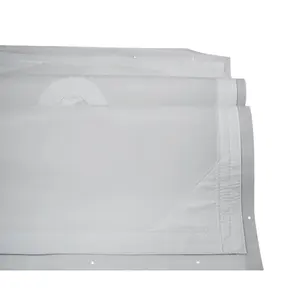



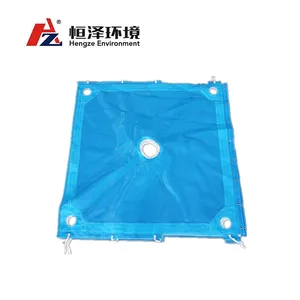

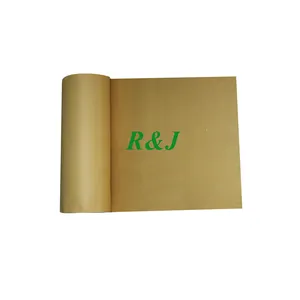
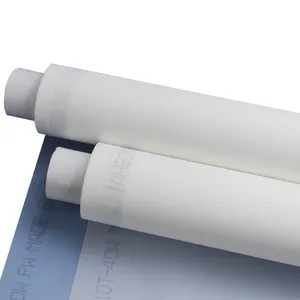



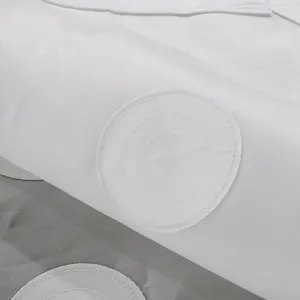





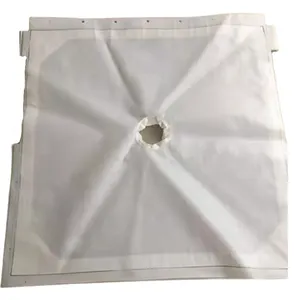


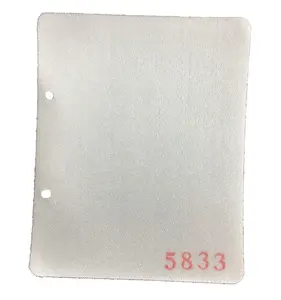


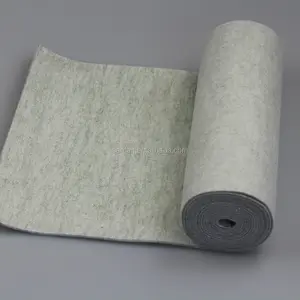

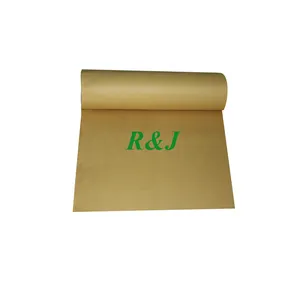


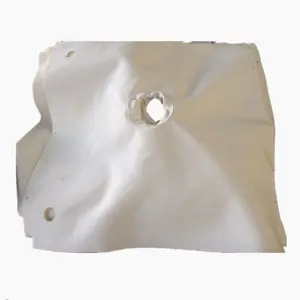


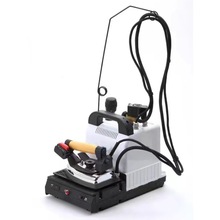


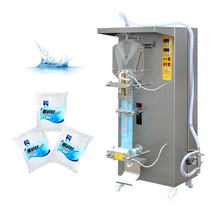
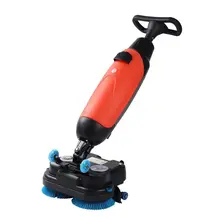
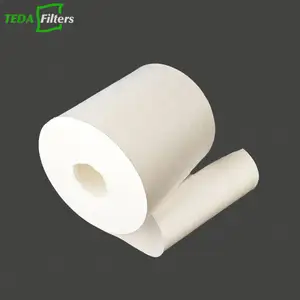
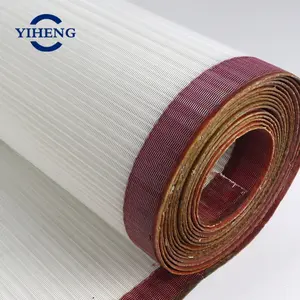

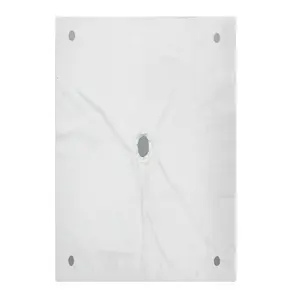
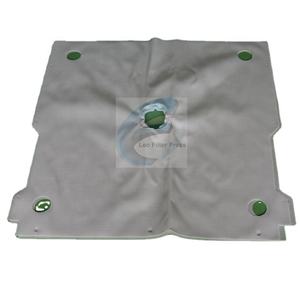
























 浙公网安备 33010002000092号
浙公网安备 33010002000092号 浙B2-20120091-4
浙B2-20120091-4